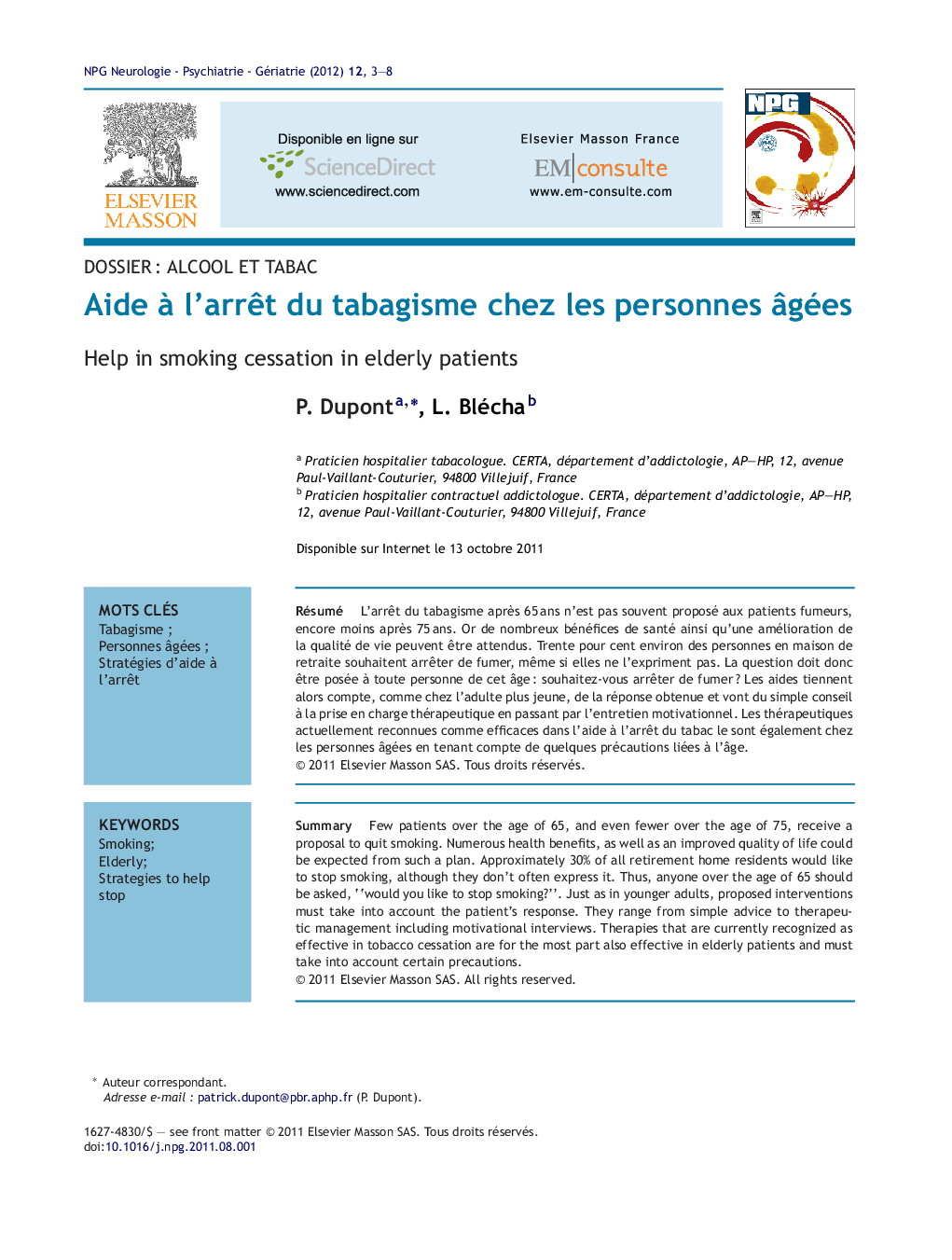| Article ID | Journal | Published Year | Pages | File Type |
|---|---|---|---|---|
| 3326235 | NPG Neurologie - Psychiatrie - Gériatrie | 2012 | 6 Pages |
Abstract
Few patients over the age of 65, and even fewer over the age of 75, receive a proposal to quit smoking. Numerous health benefits, as well as an improved quality of life could be expected from such a plan. Approximately 30% of all retirement home residents would like to stop smoking, although they don't often express it. Thus, anyone over the age of 65 should be asked, “would you like to stop smoking?”. Just as in younger adults, proposed interventions must take into account the patient's response. They range from simple advice to therapeutic management including motivational interviews. Therapies that are currently recognized as effective in tobacco cessation are for the most part also effective in elderly patients and must take into account certain precautions.
Related Topics
Health Sciences
Medicine and Dentistry
Geriatrics and Gerontology
Authors
P. Dupont, L. Blécha,
